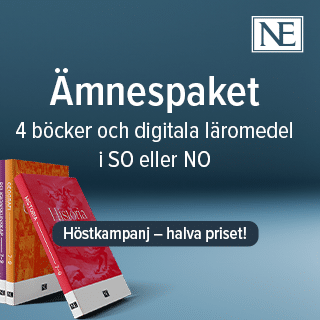Striving for autonomy. Health sciences teachers’ enactment of policy
Linda Barman har i sin avhandling forskat om hur lärare inom hälsovetenskap tar till sig utbildningspolitik.
Linda Barman
Professor Klara Bolander Laksov, Karolinska Institutet, Charlotte Silén, Karolinska Institutet
Professor Brian Hodges, University of Toronto
Karolinska Institutet
2015-03-20
Striving for autonomy. Health sciences teachers’ enactment of policy
Inst för lärande, informatik, management och etik
Striving for autonomy. Health sciences teachers’ enactment of policy
This thesis explores how teachers within the health sciences enact education policy. The questions address how teachers’ choices related to the design of courses and curricula are made in the light of reforms that emphasise standardisation and transparency. Employing a hermeneutical framework teachers’ enactment were regarded as a meaning-making process shown through reason and action. In line with the interpretative approach, the two research projects were performed with qualitative methods.
The first research project (study I and II) concerned how teachers’ understood and carried out changes in course design related to the implementation of outcome-based education and the European Bologna Process. For that purpose, course material and interview data was analysed. The second research project (study III and IV), was conducted to deepen the understanding of findings from the first project. A group of teachers who conducted major changes related to previous reform was chosen and studied with a narrative approach when they engaged in the development of teaching and learning. In particular, the teachers’ development of assessment criteria of students’ clinical competencies was studied over one year.
A body of literature report on how teachers conceptualise teaching and learning. Based on those studies there has been an emphasis on supporting teachers’ shift in views regarding teaching and learning. Related to recent reforms in higher education, it is however suggested that teachers are less free to decide upon educational matters, and hence individual teachers’ deepened understanding are not enough for development of practice to occur. The findings in this thesis suggest that wide interpretations of education policy in combination with pedagogical knowledge may benefit educational development in practice. Teachers were found to approach outcome-based education when introduced as policy in four different ways, with outcome blind, technocratic, pragmatic or ideological approach. These approaches were related to student-centred learning to more or less extent, and to greater or lesser autonomy in the decision-making related to course design.
The studies showed how teachers’ experience a tension between bureaucratic demands and what is emphasised through teaching and learning theory. For some teachers this meant that theoretical constructs were applied in instrumental ways and that pedagogy equated the bureaucratic and rational standards involved in quality control. The findings suggest however, that learning and development can be promoted through education policy but that teachers’ local practices should be supported.
Furthermore, the findings support the view of a broadened perspective on academic development related to local practices and with the aim to support the growth of communities of practice regarding teaching and learning.
Relaterade länkar

Fritidshem
 Åk F–6
Åk F–6 Matematikångest
 Åk 4–Vux
Åk 4–Vux 






